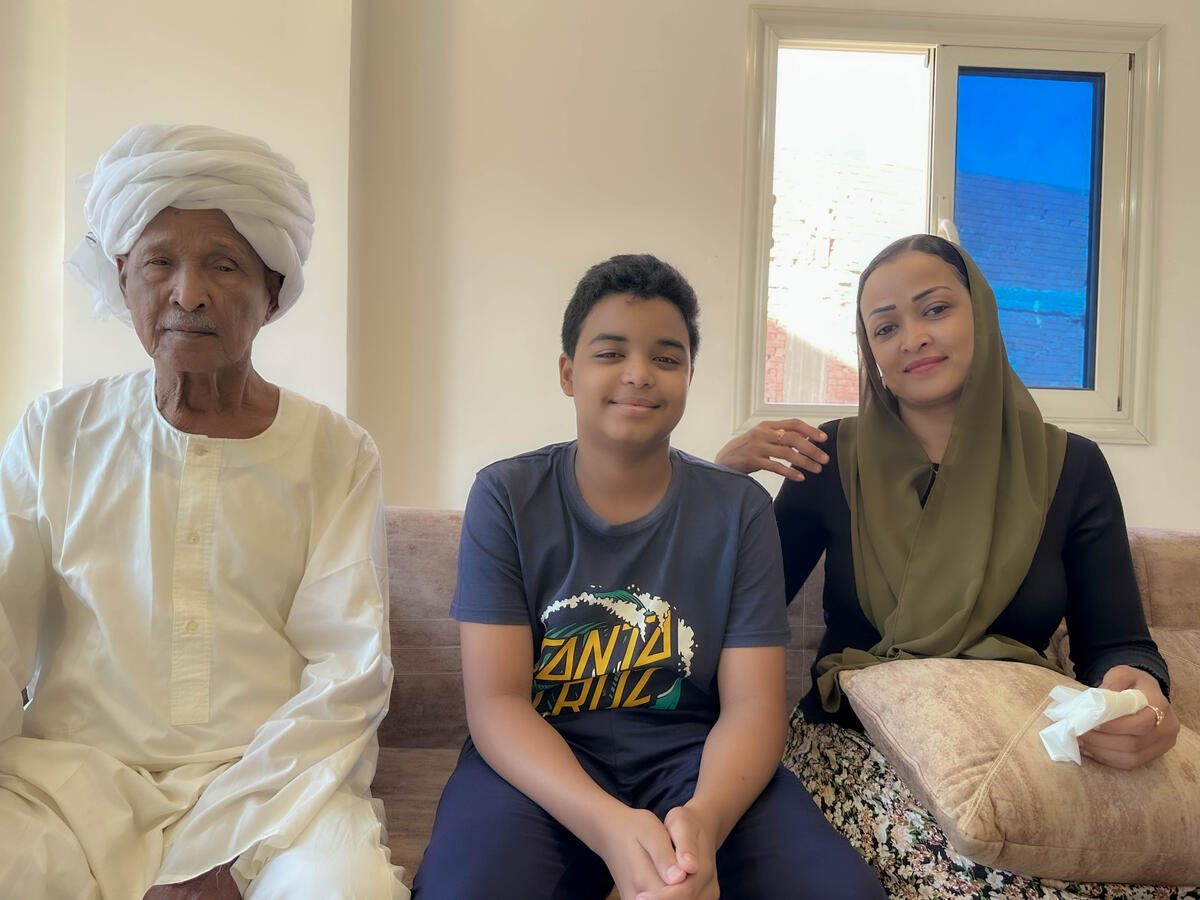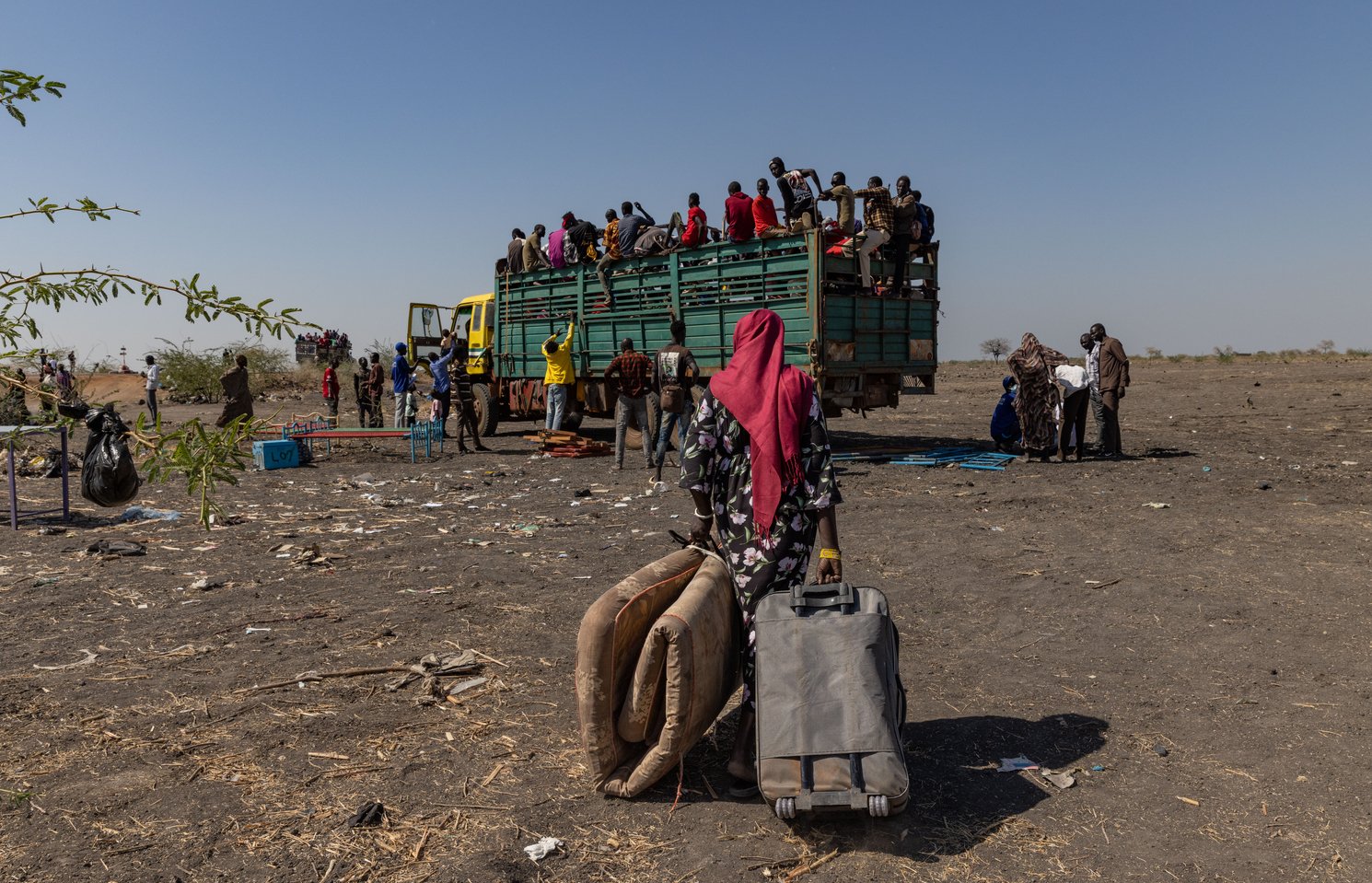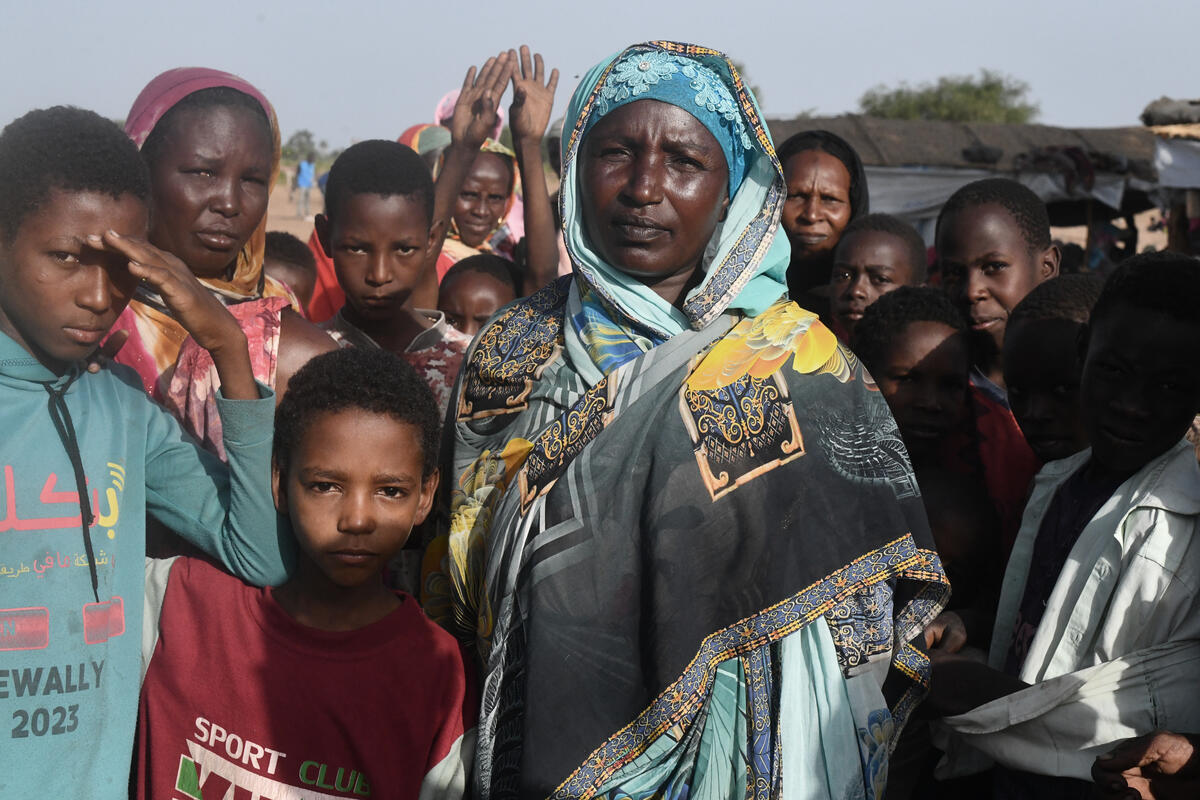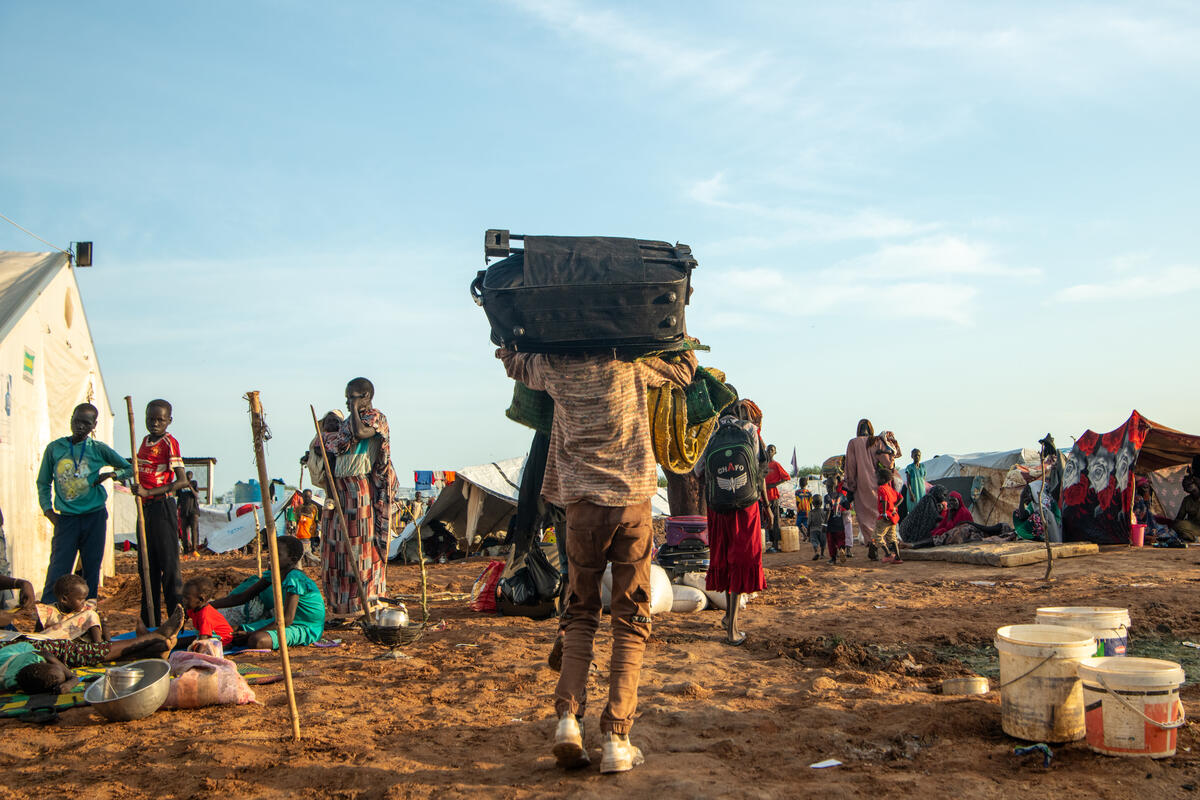A way out for Iraqi family caught in Libya's violence
A way out for Iraqi family caught in Libya's violence

SALLUM, Egypt, May 9 (UNHCR) - Over the years, George* has read about the violence and destruction ravaging his native Iraq from the safety of Libya, where he moved ages ago to pursue a career as an electrical engineer. He never imagined that all-out war would come to this peaceful part of North Africa.
Life wasn't always easy for a Christian family, but they had applied for resettlement and were optimistic about their chances until Libya started imploding earlier this year. George and his family found a way out in the end, with the vital help of UNHCR, but not before spending several weeks fearing for their lives and then wondering if they would ever get out of the country.
The Libya crisis began when people took to the streets in mid-February to demonstrate against the government, following similar movements that brought down the leaders of neighbouring Tunisia and Egypt. The protests in Libya led to warfare and the eastern town where the Iraqi family lived was attacked.
"There is no security, nothing. Children are walking the streets with machineguns. Even at home, anyone could come for us," George said, recalling the atmosphere in the town, which he asked not be identified. "And then the bombings began. We used to hide under the stairs," the 67-year-old added.
About six weeks ago, the family decided to leave the country and made their way to the Egyptian border crossing at Sallum, where UNHCR found them huddled in one corner of a crowded arrivals hall. Bedspreads, tied to a nail in the wall and tucked behind a mattress perched on its side, gave them a bit of privacy. They were the only Iraqi family in a room full of women and children from sub-Saharan countries such as Chad, Eritrea and Sudan.
Tens of thousands of people have fled to Egypt through the Sallum crossing. While Egyptians and Libyans sailed through immigration, third-country nationals have faced delays until their onward travel has been arranged. But those unable to be repatriated because of a threat to their lives, such as George and his family, face a long wait. UN High Commissioner for Refugees António Guterres has repeatedly called on resettlement countries to take in this group.
George, his wife Mary* and their five children had been recognized as refugees by UNHCR's Tripoli office in 2008. They were also recommended for resettlement because it was too dangerous for them to return to Iraq, where the small Christian community has been persecuted. They were awaiting word on the application when the conflict began.
Although they had made a life for themselves in Libya, they still faced problems and wanted to go somewhere where they could live in peace and without fear of discrimination. "My children had problems, specially my sons," George said, explaining that they were teased at school because of their religious faith.
His wife and daughters dressed in a way that hid their religion. "We could not wear crosses and we had to cover our heads," Mary noted. Their daughters often had to be chaperoned by their parents when moving around town.
When UNHCR visited, some members of the family were coping better than others. His vivacious older daughters, Helen,* aged 23, and 21-year-old Sarah,* were making the most of things in this unfamiliar, uncertain and tough environment where they had to share the limited facilities with so many others.
Helen was in her last year at medical college in Tripoli when the family had to flee, but she was optimistic about the future, despite her father's concerns. "If she doesn't get the degree, she will have to repeat medical school," George fretted.
While Helen and Sarah were keen to get out of Sallum, they tried not to dwell on their situation. The girls volunteered to help out at a clinic set up by the World Health Organization for those stuck at the border. With hundreds of stranded single men around, George escorted his daughters to the clinic every day.
Their youngest brother, 17-year-old Michael,* is retiring and quiet. He had a particularly difficult time in Libya, often teased by other children. His brother, William,* is more confident. "I want to go to college, to finish my education. I want a good job; I don't want to always be moving, living in tension," he said.
Dina, the 15-year-old baby of the family, just felt depressed when she looked around the crowded room. "I am not happy. We are homeless," she said. Her mood only lightened when she talked about Bollywood movies she had seen.
Not long after UNHCR visited the family, the news they had long been waiting for came through - they were to be resettled. But first they would be spending a few weeks in the special Emergency Transit Centre in the Romanian city of Timisoara, which provides a half-way house for refugees at risk of harm.
Now they are living in the special centre next to a group of Eritreans who were flown to Romania from Tunisia after fleeing Libya. They also can't go home. Soon the long ordeal will be over and George, Helen and the children can start a new life in the United States. "I want to live in peace, in freedom, without fear of anything," said William, who aspires to become a pilot. Dina favours journalism. "My dreams are for my children. For their education, safety and freedom," their mother said.
* Names have been changed for protection reasons.
By Nayana Bose in Sallum, Egypt








